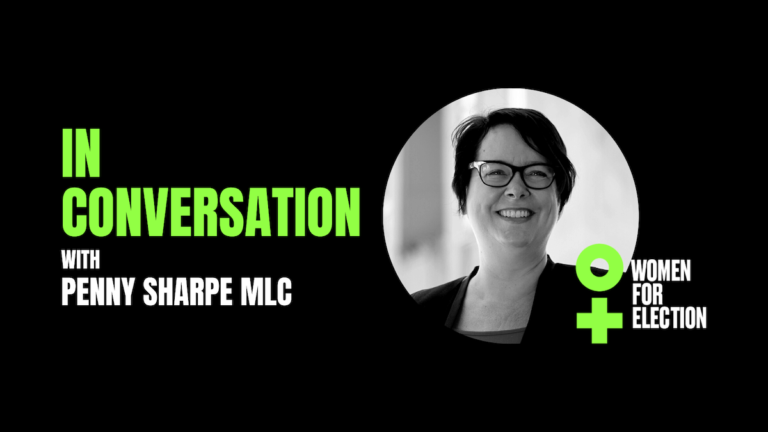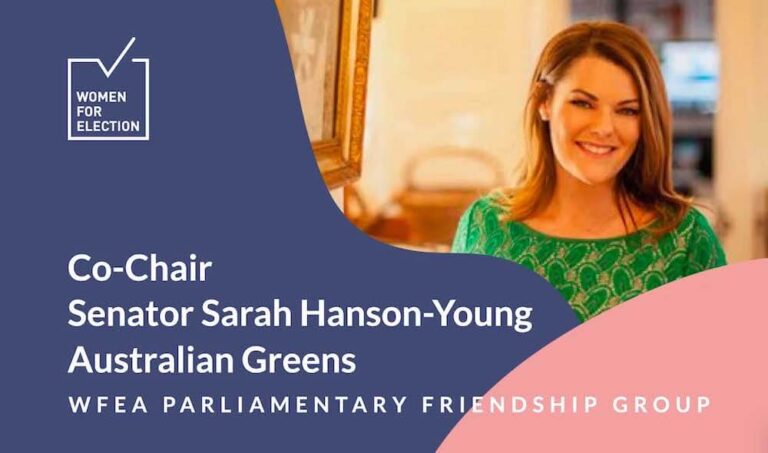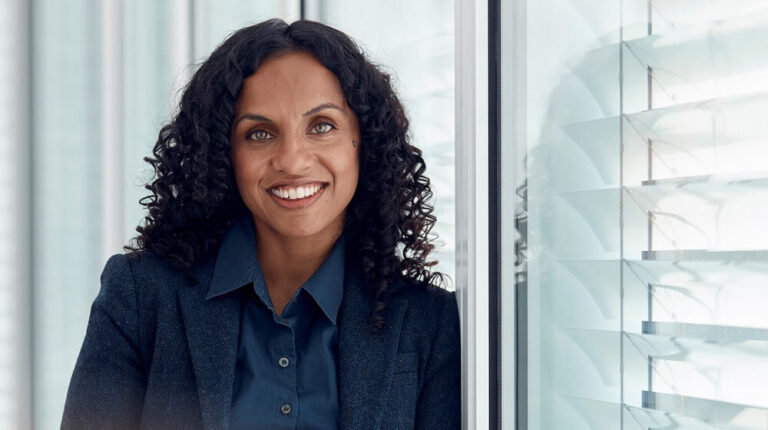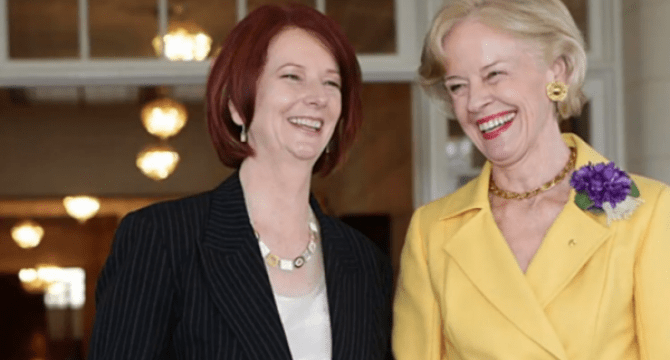Dr Sophie Scamps MP ‘In Conversation’
It was a very special In Conversation on 16 May as we had the opportunity to talk to Women for Election alumna, Dr Sophie Scamps MP. Sophie was a participant in our first online EQUIP course that we ran during COVID lockdown.
Sophie is the Independent Member for the Federal electorate of Mackellar. Sophie made history at the 2022 election by becoming the first Independent to win the Northern Beaches seat since it was formed in 1949.
Prior to entering politics, Sophie was a practicing GP in Narrabeen, while also serving the community in the Emergency Department of Mona Vale Hospital.
Sophie claims that she was “actively engaged and aware, but not active” in politics before she decided to run. She would “spend a lot of time trying to convince other people that they needed to act on particular things, particularly climate change.”
She also founded Our Blue Dot, a community-led NGO aimed at helping individuals and community groups reduce their impact on the environment.
Sophie was getting “more and more concerned about the lack of national leadership on climate change and more and more frustrated until one day, and I don’t why it took so long, (I decided to) step up.”
For Sophie, this didn’t mean that she was “going to run as a federal politician or be a candidate,” it was about “bringing people together and making changes in our community.”
Initially, Sophie didn’t want to be a candidate herself. Instead, she started the Voices for Mackellar group, “a grassroots movement to bring local people together and to look for a suitable candidate.”
But through this process, her mindset shifted:
Sophie had a “realisation that why wasn’t it me that was actually stepping up?”
Sophie touched on an important, systemic barrier that prevents many women from stepping up into public life: that we don’t automatically think of ourselves as the right person for the role, especially when we might not look or behave like the current generation of politicians.
Further, many people warned Sophie that running for Federal parliament would be a toxic experience. However, she found it to be the “most wonderful experience you could possibly imagine – and that’s even without the result.”
Sophie reflected that:
“It was this incredible coming together of the community and people who had felt cut out and shut out and disenfranchised from their democracy for so long, finally feeling that they had a voice and they were excited to be involved in their democracy.”
Federal politicians spend around 40% of their time in Canberra (with 20 sitting weeks each year) and 60% in their electorate. Sophie enjoys in Canberra in what she calls “parliament in exile” as a member of the crossbench, because she gets to “spend a lot of time in cross party situations with people you wouldn’t normally get to speak to.” Sophie has “developed friendships across parties,” and feels “that kind of collaboration” only strengthens our democracy.
Recently, Sophie introduced her first Private Members Bill, colloquially known as “Ending Jobs for Mates!” While the Government is unlikely to ever select the bill for debate, “what happens is that we shine a light on what needs to be done and where there are gaps,” in policy and legislation.” Dr Helen Haines MP’s Private Members Bill on ‘Integrity’ is another great example of the power of Private Members Bills to affect change.
Sophie has not experienced a “huge amount of misogyny and sexism in parliament” and believes this is due to the fact that she is an Independent and doesn’t have to deal with the “different factions and the toxicity that comes inside the parties.”
The independents are “a bit unknown,” and when she meets with other parliamentarians she does so “on a respectful level.” Although, she has been recently ‘mansplained’ and found it derogatory, she “continued to respond in a respectful way.”
Sophie really enjoys “getting out and about” in her electorate and “seeing all the amazing things that different people are doing to support other people in their community.”
She is aware that:
“Grassroots movements are largely driven by women,” which in Sophie’s experience has led to “having conversations in a respectful way which is incredibly powerful, like those networks.”
At WFE we know this to be true! Thank you, Sophie, for an incredibly engaging and insightful conversation.







